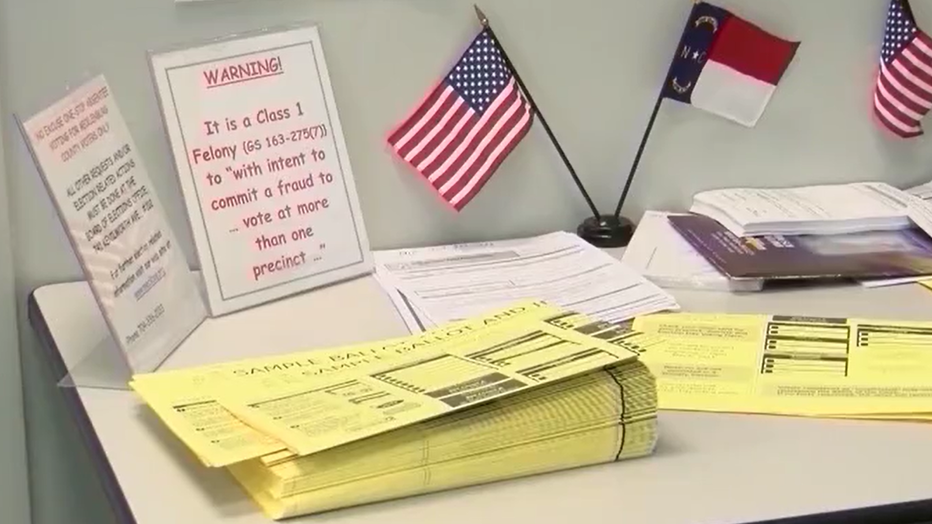GOP requests voter proof of citizenship enforcement and a swift ruling by SCOTUS
GOP seeks SCOTUS decision on proof of citizenship law
The GOP is seeking a quick decision on enforcement of a proof of citizenship law for voters after filing an emergency appeal to the Supreme Court. FOX 10's Ashlie Rodriguez has the story.
PHOENIX - Republicans are asking the Supreme Court to enforce the proof of citizenship law.
The GOP filed an emergency appeal with Justice Elena Kagan and want a decision by next week.
This battle over whether voters should have to prove citizenship to vote has been ongoing for a decade in Arizona.
This month, Republicans are asking the Supreme Court for a firm and final decision because not only is the presidential election around the corner, they say the border is wide open.
Featured
Arizona’s new voting laws that require proof of citizenship are not discriminatory, judge rules
In a ruling Thursday, U.S. District Judge Susan Bolton concluded Arizona legislators did not discriminate when they adopted the laws and the state does have an interest in preventing voter fraud and limiting voting to those individuals eligible to vote.
Republicans are filing an emergency appeal, urging the Supreme Court to allow Arizona to enforce House Bill 2492, the proof of citizenship law.
The law requires documented proof of citizenship to cast a ballot in the presidential election, including those participating in vote by mail, but it was challenged by pro-voting organizations and blocked by a federal judge.
"I 100% believe that it’s a rock-solid right of American citizens to vote and I also 100% believe that people who are not American citizens shouldn’t get to decide policy for people who live here," said Gina Swaboda, Arizona GOP Chair.
Republicans claim that reinstating the law would ensure voter integrity during a time when President Biden’s open border policies are allowing for an influx of migrants.
Every vote counts in Arizona
Right now in Arizona, people who cannot provide proof of citizenship can only vote in federal elections - not state - unless the MVD has their records and every vote counts in Arizona, a critical swing state in the election.
"Look how close the presidential election was between Biden and Trump in 2020. 21,000 (vote difference) right? So there is concern about any votes, given Arizona’s super, super close elections," ASU professor Thom Reilly said.

But a Brennan Center for Justice study says voting by non-citizens is rare.
They found out of 23.5 million votes cast in the 2016 election there was only an estimated 30 incidents of suspected non-citizen voting - or 0.0001 percent of the votes cast.
Instead, the organizations who challenged the law argue HB 2492 only disenfranchises people who don’t have access to citizenship documents.
The DNC wrote in a statement:
What's next?
Any challenges to the Republicans’ request have to be made by Friday.
Supreme Court Justice Elena Kagan can decide the case alone or bring in her eight colleagues to help.
Republicans want a ruling by next Thursday, August 22.


